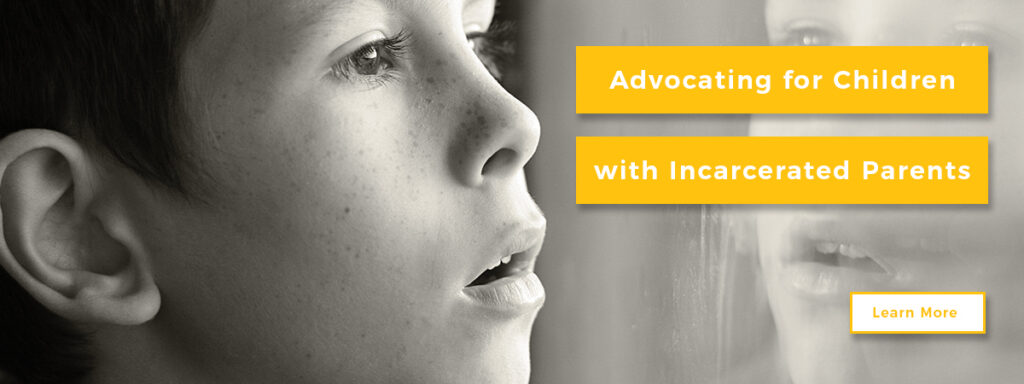
A few months ago, a 17-year-old high school senior and her nine-year-old brother came home from their Lancaster County school and their mom wasn’t there. Kira (not her real name) and Michael had faced this circumstance before, so they went on with their day—snacks, homework, bedtime and getting up for school the following day. Another day passed, then another. After three days, Kira reached out to their grandmother. Together, they found out that their mother had been arrested three days earlier. No one told her children.
By the time they returned to their apartment for schoolbooks and clothes, the landlord had put a lockbox on their door because their mother was behind on rent. Big needs loomed: the siblings had no legal guardian to authorize medical care, they didn’t have clothes or other necessities. Other questions weighed on their minds: How would classmates react? How would Kira pay for her cheer uniform?
Lindsey Ober calls this ‘the silent sentence.’ Lindsey is Compass Mark’s Family Services Advocate (FSA) for Lancaster County. She, along with Denni Boger, Compass Mark’s Lebanon County FSA, work to identify, support and advocate for the needs and rights of children who have incarcerated parents.
When Lindsey learned about Kira and Michael, she jumped into action. She called the landlord and was able to get their belongings. She obtained legal guardianship for their grandmother. She found Michael a therapist to help him work through the trauma he experienced. She reached out to Ambassadors of Hope, a partnering organization who supports children of incarcerated parents, and they paid for Kira’s cheer uniform.
With these critical needs met, Lindsey knew what was next. Of the 384 children she’s worked with in the past year, there is always one need above all the others: children want to see their parent. Fortunately, Lindsey went through an intensive five-week training session (the same training as a corrections officer at Lancaster County Prison) so she could oversee supervised visits between incarcerated parents and their children.
On one of Lindsey’s visits to the prison, she took in a Build-A-Bear with a voice recorder so Kira’s and Michael’s mom could record a message for them to play whenever they want; and they do, often.
Identifying Kids in Need
When a parent is arrested, their children serve their own sentence. First, it’s an emotional sentence: kids feel the stigma of having a parent in prison. The second sentence is physical. They can immediately lose their home, their legal guardian, their medical care, their school, and proximity to friends. And some, like Michael and Kira, have no idea where to turn for help.
That’s where Lindsey and Denni come in. One of the ways that Lindsey identifies kids in need is by going into Lancaster County Prison three times a week and meeting with new intakes. Of the 2,500 men and women housed in Lancaster County Prison over a typical year, 80% are parents, and 40% have more than three children.
“My job is to fill in the missing pieces,” Lindsey says. She finds out who has the kids, whether they need school clothes, have insurance, how they are getting to piano lessons.
Then, she works through what kids need to get back on their feet. Once their physical needs have been met, she can arrange for therapists and school counselors to help them heal and move forward.
Denni gets referrals from Lebanon County Correctional Facility as well as Lebanon County School Districts, along with other community-based nonprofits. After identifying that the child’s needs are met in regards to food, clothing, housing, school, etc, he moves on to solve issues like facilitating parent participation in meetings and providing help obtaining required documents for a caregiver to become a legal temporary guardian.
Creating a Community: Compass Mark’s Solutions
Working with local partners, Denni has implemented a project called Read to Them, which allows the child to receive a book and voice recording of their parent reading the book to them; just another way to keep the child connected to the parent and reducing the impact of incarceration.
In Lancaster County, private donations to Compass Mark helped Lindsey to start something new: support groups in three local schools. “These groups help kids realize they aren’t alone,” she says.
How You Can Make a Difference
Your donations to Compass Mark can impact this program and help local children. In addition to the student support groups, your gift can fund immediate needs like diapers, or the Build-A-Bear with a recordable message for children to feel close to their incarcerated parent. Denni adds that the donation of books with themes of hope, optimism, and healing is always appreciated for the Read to Them program.
Make a difference for a local child today by giving online at compassmark.org/donate
To learn more about the program: compassmark.org/family-services-advocate/